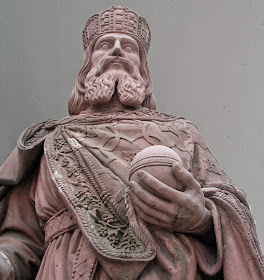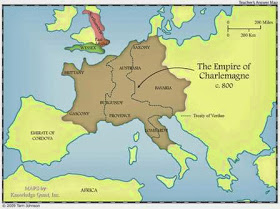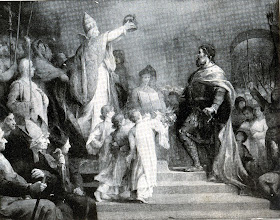This Easter Sunday the secular world, via the never too Christian-friendly NBC network, will be treated to prime time programming that showcases the Acts of the Apostles with A.D. The Bible Continues. Such an opportunity for mass evangelization ought to excite us Catholics called, as we are, to reengage the world in a "New Evangelization" (new in method, new in ardor, new in expression, as St. John Paul the Great commented). Of course, with A.D. The Bible Continues being produced by Protestants we Catholics might have, for just reasons, a bit of hesitancy in celebrating too openly about this project. Will "once saved always saved," a fallacious reading of Paul on "works vs faith," a lack of sacramentality, and an anachronistic proto-Protestant ecclesiology replace the authentically Catholic reality of the first Christians life, beliefs, and worship? I'll admit to not being over-enthused myself by the very real possibility of a pseudo-historical Protestant apologetic whitewashing of the reality of the Early Church (which was very Catholic indeed - just read the Early Christians for yourself if you don't believe me.)
Then I was sent a couple books by Sophia Press to review with you here on the blog. A.D. The Bible Continues: Ministers & Martyrs
From the back of the book (emphasis mine):
Based on the epic NBC television event, A.D. The Bible Continues: Ministers and Martyrs offers an unflinching look at the lives and sacrifices of those first Christians who were given the task of spreading the Gospel to the ends of the earth.Relying on the ancient documents, as well as latest archaeological findings and scientific research, acclaimed author Mike Aquilina takes you on a journey through the Apostolic Age, bringing to life the ancient streets and crowded marketplaces through which Mary and the Apostles journeyed as they built a Church that lasts even to our day.You'll also discover the beliefs of the early Christians, what they taught about the Eucharist and the Divinity of Christ, how their Church services resembles today's Mass, and how Rome became the spiritual center for Christianity.Read these pages, and you'll come to see that despite the best efforts of their enemies, the blood of the Apostles did not snuff out the Faith but brought forth great saints whose holy deeds and brave examples gave the besieged Church a vigor that lasts even to today.A.D. The Bible Continues: Ministers and Martyrs will give you confidence that the Church is indeed Christ acting in the world, and that no matter how ruthless her opponents, she will endure to the end of time.Anyone familiar with Mike Aquilina's writing, especially his books on the Patristic period (e.g. The Fathers of the Church
A.D. The Bible Continues: The Catholic Viewer's Guide
From the back of the book (emphasis mine):
This beautiful, full-color viewer's guide offers everything you need to fully experience the A.D. The Bible Continues television series.The Catholic Viewer's Guide is truly a great companion to watching the series, one I'd warmly recommend to all my readers, Catholic and non. For each episode a brief "background reading" (taken from Ministers and Martyrs), a list of "key characters", including pictures, a "Catholic takeaway," glossary of terms, important relevant Bible verses, quotes from Catholic saints (Thomas Aquinas, Josemaría Escrivá, Augustine of Hippo, Francis of Assisi, etc.), discussion questions, and a traditional Catholic "closing prayer" are all provided. Also, and perhaps my favorite element, a "Go Forth and Evangelize" section ties in the episode to the goals of the New Evangelization making each episode into a clarion call to fulfill the Great Commission. I hope to be able to watch A.D. The Bible Continues and will certainly be using the Catholic Viewer's Guide as my Virgil to the series.
In these pages you'll take an unforgettable journey through the Apostolic Age as it brings to life the dusty streets and crowded marketplaces through which Mary and the Apostles journeyed as they built the Church.
For each episode you're given . . .
A short essay with important historical and theological context. A detailed map that enables you to see where the Apostles journeyed or where important activities happened during the episode. Profiles so you know the role of each Biblical character. Pre- and post-viewing questions for family study, viewing parties or small group discussions. Definitions of words or terms you will hear in the episode but may not know. Connections to Scripture and to the lives and writings of the Saints. Ways in which you can use the principles in the episode to strengthen your own spiritual life.
The Catholic Viewer's Guide is absolutely essential if you are to make the most of A.D. The Bible Continues. It's perfect for personal use, group discussions, family study, or small group sessions.
(And remember purchasing on Amazon through our affiliate link helps the blog without costing you a penny, nice deal, no?)














